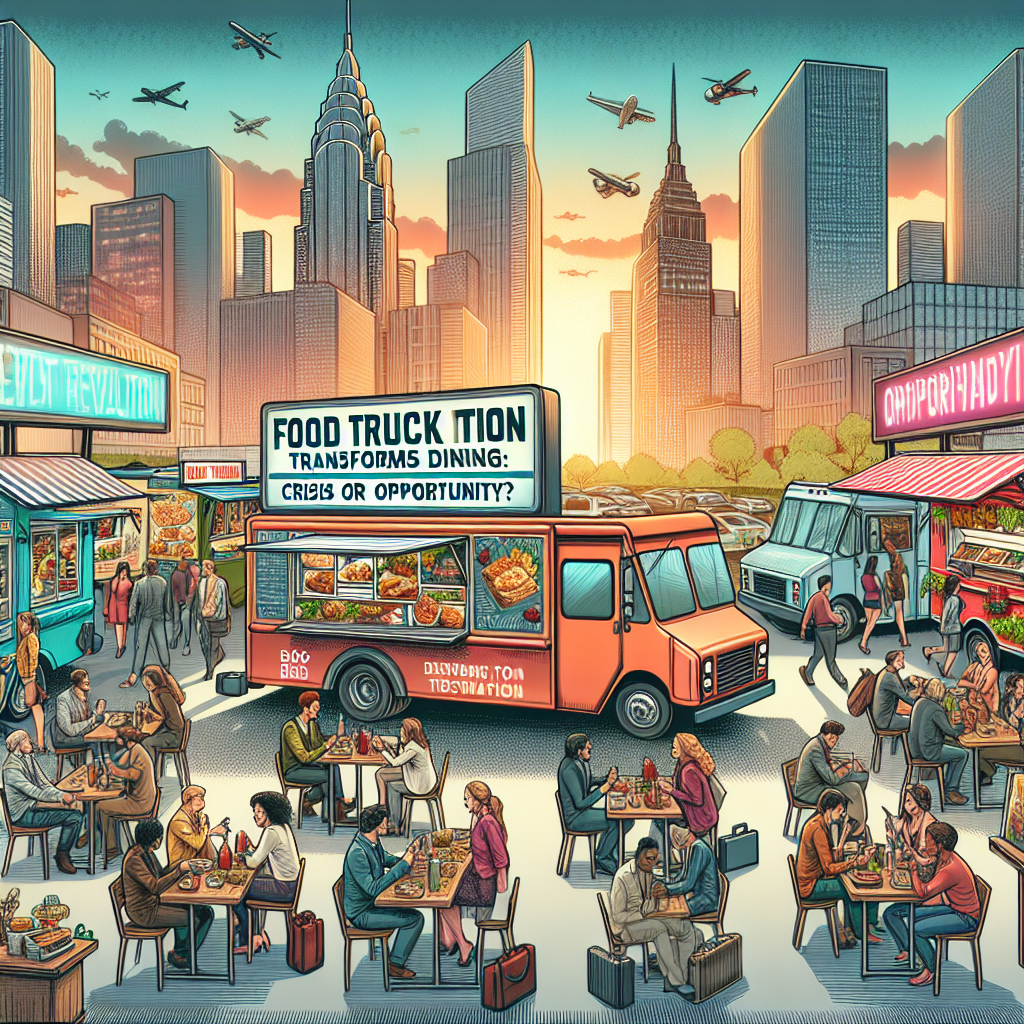In many ways, the advent of food trucks has transformed the American culinary landscape. But as we savour these novel flavours with delight, an unsettling underbelly to this urban revolution goes unnoticed. Is ‘food deserts’, traditionally associated with low-income neighborhoods now shifting onto wheels? Are our city streets unwittingly becoming gourmet avenues for illicit activities?
The origins of the ‘Food Truck Revolution’ can be traced back to ancient mobile eating cultures from around the world. In recent times however, it’s taken on dangers that shadow culinary innovation.
What began as an economic alternative for aspiring restaurateurs during recessionary periods has shifted course. Today’s food trucks offer anything from farm-to-table produce to fusion cuisine. Meanwhile, law enforcement agencies across major cities are grappling with how this gustatory renaissance intersects with their efforts at maintaining peace and order.

Culinary Tradition
Societies worldwide have always celebrated their culture through street food; delectable dishes sold from movable carts crafting timeless stories about people and places.
Cultural Roots
The rise in popularity of these mobile kitchens is also a testament to America’s rich immigrant history that brought diverse palates to its shores.
Modern Evolution
Modern day chefs increasingly bring fine dining experience onto four-wheeled restaurants challenging traditional establishments.
Key Ingredients
From using locally sourced products representative of unique regional flairs to showcasing international ingredients; there’s more than just savory or sweet food being served from these trucks.
Preparation Methods
However, the deeper we delve into this gastronomic phenomenon, the more it reveals: an unprecedented surge in crimes including health violations, drug trafficking and violence.
Cultural Significance
The social repercussions of these incidents play out dramatically on a cultural level. They deepen divisions between those who see food truck culture as a celebration of culinary diversity and those who view it cynically as a law enforcement nightmare.
‘The generational divide over’ this issue is stark; while younger generations may champion ‘pop-up eating’, police reports paint a darker picture.

Contemporary Trends
A joint study by the National Restaurant Association and local police departments across major cities has found that 25% of all reported food-related criminal offences last year were linked to mobile catering businesses. The trend indicates an irony – how society’s love for affordable fine dining could be exploited for criminal enterprise.
Expert Perspectives
Sarah Bradford from NYPD’s crime analysis unit comments: ‘We’re dealing with numerous challenges that come with regulating this new wave of eateries.’
Personal Experiences I’ve spent weeks embedded within various food truck communities learning their stories and sharing their challenges not just as entrepreneurs but also victims.
Cultural Preservation
In light of these troubling issues are initiatives focusing on preserving culinary traditions without jeopardizing public safety.
In conclusion, our quest for innovative urban consumption should never overshadow its potential repercussions on societal integrity. It posits an uncomfortable question: Are we inadvertently sustaining a crisis midst seeking diverse cuisines? Or does this revolution presents us with opportunities to adapt our regulatory frameworks thereby transforming how we perceive ‘street-food culture’?

